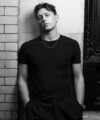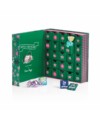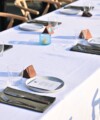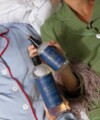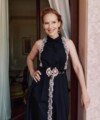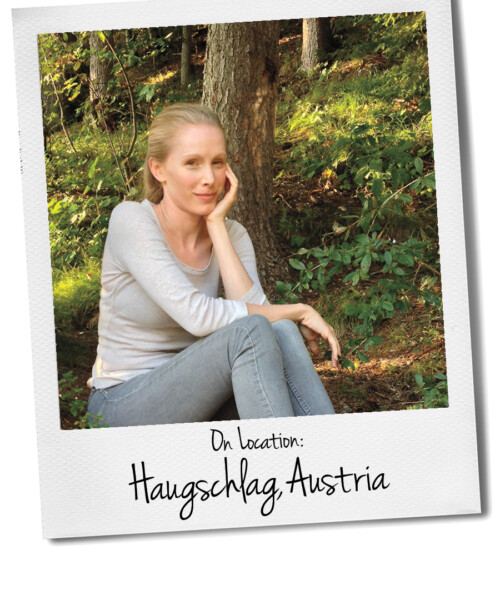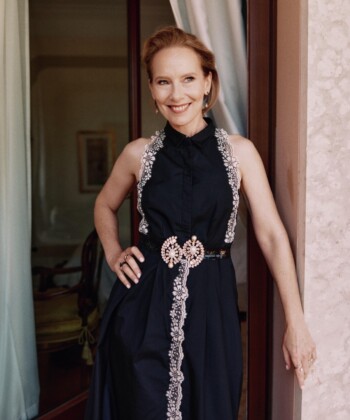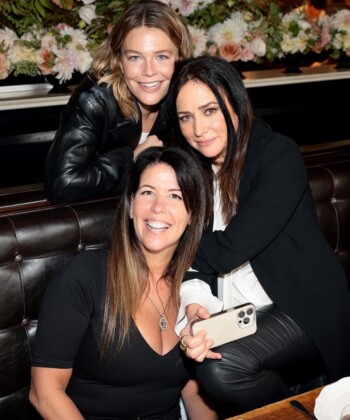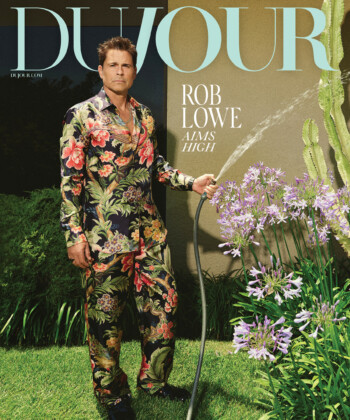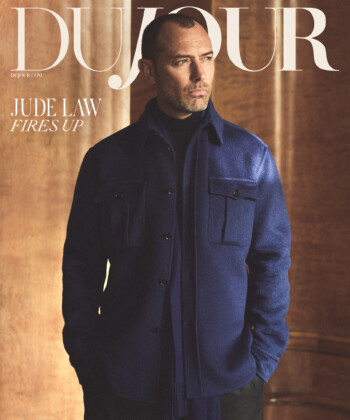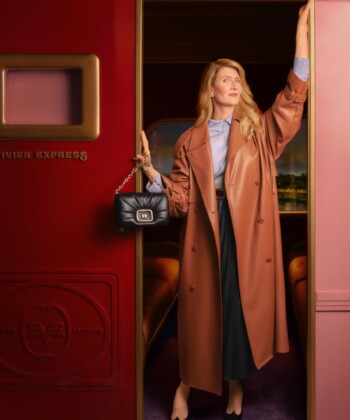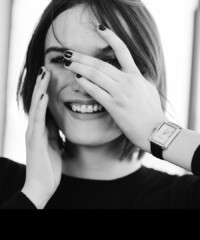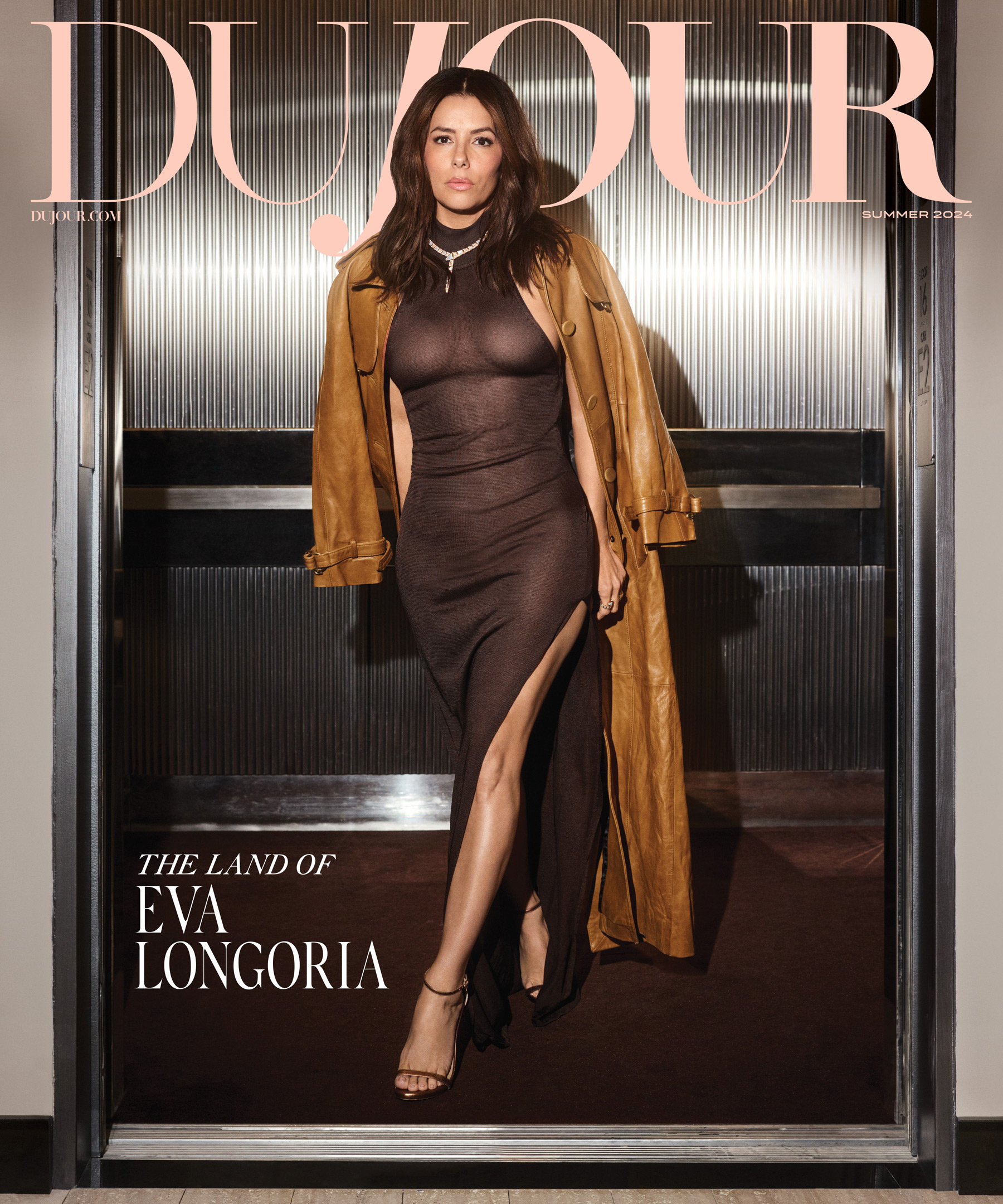Goodnight Mommy, Severin Fiala and Veronika Franz’s thriller—and this year’s Academy Awards entry from Austria— follows the terrifying story of twin brothers who suspect their mother isn’t who she says she is after returning home from a cosmetic surgery. Perhaps the only thing more chilling than the sinister plotline and unexpected violent twists is the setting in which the film, which hits theaters September 11, takes place. Filmed on the Austrian/Czech border in a tiny village of Haugschlag, Susanne Wuest, who plays the mother, found the extreme remoteness of the countryside helpful in getting into the mindset of her character.
Actually calling it a tiny village, according to Wuest, is a bit of an understatement. “There’s not a lot of infrastructure. You don’t have cell phone reception or Internet, so you don’t have anyone to speak to. It was very isolating, which was challenging,” she says. That’s not to say that there were no upsides to unplugging for the three or so months the cast and crew spent on location. “I did a lot of running around a beautiful forest and swimming in the lake. There are basically no people so you can enjoy nature and its core. Having that experience is very grounding. It’s a beautiful thing.” To put things into perspective, the village was almost fully occupied by the film crew. “But it was really fun in that way—kind of like when you have a holiday with your classmates. We were very much by ourselves,” she says.
Much of Wuest’s day, which typically began with a 7 a.m. run and ended with a swim in the lake, is spent putting on and taking off the mummy-like face gauze bandage. An hour-and-half each way, Wuest describes the experience as one of the most intense she’s ever had. “It really limits the way you see and hear and feeling for balance. For the first day, I was really trying to make my way through the house without failing down the stairs,” she says. “Beneath the bandage, my head was boiling at times. Sometimes I felt like someone who was under heavy medication— I couldn’t see, smell, had a hard time hearing and talking.”
The film makes everything appear as real as possible, down to the scenes where roaches crawl out of her mouth. “I asked the production company if I could have some of these roaches right from their birth. I grew quite fond of them,” she says. Raising the pair, which she even named herself, Wuest trained them to get accustomed to her. But for such a foreboding film, there was no shortage of love on set. “Whenever we had to do something that was tougher and more physical, there would be a lot of cuddling and hugging,” says Wuest about working with her co-stars Lukas and Elias Schwarz.
And the brothers, who were picked after auditioning nearly 150 pairs, worked mainly off-script. “They didn’t know what was going to happen. Every day, they were excited to find out the story. It was mostly improvised,” she says. “We tried to surprise them and get them scared, but that was hard because 9-year-old boys are hard to impress.”
Preparing for the film was just as taxing as filming itself. “I knew I had to be in bed a lot during shooting and to do that you have to have really good back muscles,” she says. “So I called a boot camp trainer. For two months, we trained outside no matter what the weather was like. I have some serious back muscles now.”
But still, buried under all these scary details lies an important message Wuest hopes audiences take with them. “It is a horror film, but it’s very much a modern film about identity and what’s left of us when people close to us don’t recognize us anymore. People are very eager to present themselves on the Internet so it’s a story that asks who am I and what kind of person do I want to be in the eyes of other people.”


